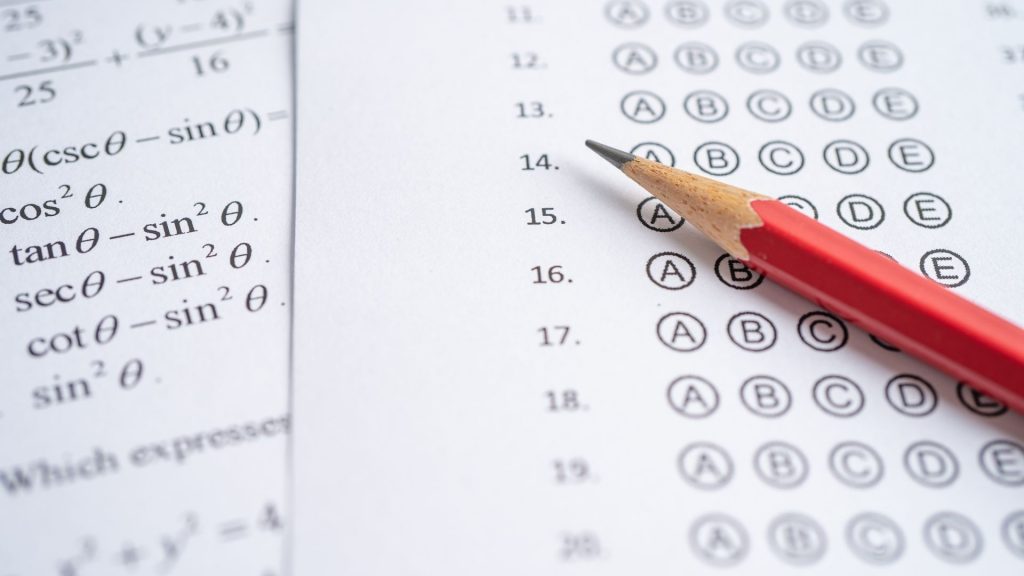Bill Looks To Mitigate Test Scores In This State
A series of bills look to mitigate student scores in this state so they won't effect student grade advancement or teacher's evaluations.

Test scores have long been indicators of academic achievement, but their reliability in understanding comprehension is now under scrutiny. Much of this came with the onset of the pandemic, as many public schools ditched standardized testing requirements and vowed not to hold students back because of poor student scores. One state is taking that notion one step further, as it looks at a slew of bills in congress to mitigate test scores.
In Michigan, four separate house bills seek to change how the state weighs on student scores in standardized tests. House Bill 5991 would omit this school year’s current third-grade students from advancing to the fourth grade even if they fail to pass the state’s Read by Grade Three law. Under this provision, students that fail to read at least a second-grade level must repeat third grade. The other three bills waive various state requirements on student test scores.

House Bills 5992, 5993, and 5051 would place a temporary waiver on the state’s laws regarding student scores when evaluating teachers’ and administrators’ performances. Under current law, more than 40% of a teacher’s evaluation must be based on academic growth students demonstrate throughout the year’s various state tests. Within the new proposals, evaluations would omit student scores, and base teachers’ performances on other criteria such as instructional improvement, performance goals, and classroom observations.
The bills’ sponsors are all Democrats from the Great Lake State excluding the one Republican constituent, Rep. Bronna Kahle who showed approval for the legislation looking to waive student scores as a means to evaluate teachers. But still, the effort’s Democratic sponsors are hopeful they can garner more support. “We’re not all the way there yet, but I think we can make some headway,” said Rep. Brenda Carter.
Under current state laws, the results of students’ scores on standardized tests can hold imperative corollaries for all involved. Other than affecting whether or not third-graders can move forward into fourth grade, these laws can punish teachers in more ways than one. Grades on state tests can weigh on decisions of tenure, staff reductions, reassignment, and promotions, according to Chalkbeat.

Ben Degrow, the director of education policy at the conservative Mackinac Center for Public Policy showed opposition to the bills. Degrow drew on the importance student scores can have on a student’s overall education experience. According to Scientific America, research in cognitive science and psychology shows benefits from testing. Test-taking can forge better recollection of facts, and a better understanding of the material over an education bereft of any tests. Furthermore, standardized tests give state officials a better understanding of where students align and compare with each other.
Many school districts opted for mitigating student scores during the 2020-2021 school year with the pandemic being the leading factor. But this year, the majority of America’s schools were fully reopened. Still, however, some believe the pandemic’s effects impairing student achievements continue on. This is the sole reason Democrats wish to further the initiatives weighing so heavily on student scores.
Given that the GOP leads both the Senate and House majorities in Michigan, the Democrats have their work cut out for them if they plan on gaining more support for the legislation. They have the support of the state’s teacher unions, which agree with the cause. But more than likely, third graders who fail to meet state standards in student scores will still have to repeat a grade next year.



